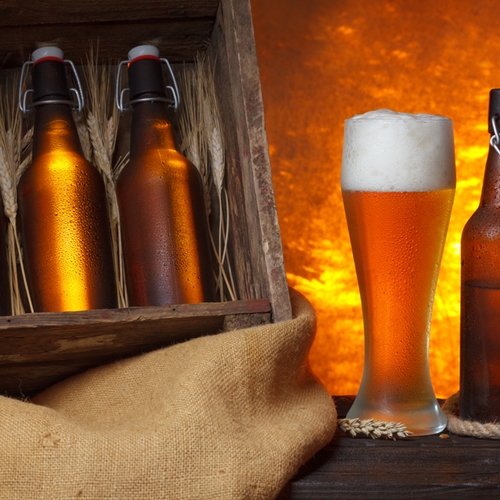
When you’re buying a soda, juice or beer, do you find yourself always choosing a can or a bottle? Though this distinction might seem like nothing more than a matter of personal preference, bottles and cans actually provide very contrasting storage environments for foods and drinks, which can make all the difference in taste. So what are the real pros of these containers? Here’s a breakdown of the true benefits of cans and bottles:
Cans
- One of the biggest pros of storing drinks in a can is that the product suffers no light pollution. Specifically in beer, light that goes through bottles can skunk beer at a faster rate and have a negative effect on flavor.
- Cans take less time to cool. If you don’t have a lot of time to get a beverage cold, cans will chill faster than bottles.
- Cans weigh less than bottles, making them easier to carry around day to day. Cans also tend to take up less space and therefore are easier to pack. This is one of the reasons cans are preferred by backpackers, bikers and boaters. Additionally, when out on the river in a kayak or canoe, cans have no risk of breaking, and they float when they’re unopened.
- Cans have a tighter seal, so they are less likely to let in air or release carbonation.
Bottles
- Glass bottles retain a cold temperature for a longer period of time than an aluminum can. So even though bottles take longer to reach the desired temperature, when you transport them in a cooler or take one out of the fridge, they will keep your beverage cool while you imbibe.
- Many avid bottle users claim that cans have a metallic taste, whereas bottles don’t alter the flavor. But this point is up for debate. Modern cans are lined with plastic on the inside to prevent an overwhelming metallic taste. However, many consumers claim to taste the difference anyway.
- Bottles are easy to sanitize. This is one of the reasons they have been used heavily in the brewing industry.
- Bottles have a classic look (think Coca-Cola polar bears).
- Within the world of beer, many microbrewers are switching to cans because cans hold on to flavor and are lower in cost. However, the microbrewing movement began with many breweries almost exclusively packaging in bottles, and many consumers have become accustomed to bottles.

